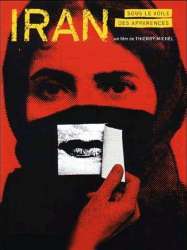Katanga Business is a belge film of genre Documentary directed by Thierry Michel
Katanga Business (2009)
Katanga business

If you like this film, let us know!
- Infos
- Casting
- Technical infos
- Photos
- Videos
- Film quotes
- Characters
- Music
- Awards
Length 1h30
Directed by Thierry Michel
OriginBelgique
Genres Documentary
Themes Films set in Africa, Environmental films, La mondialisation, Films about the labor movement, Documentary films about business, Documentary films about environmental issues, Documentaire sur le monde du travail
Rating68%










Katanga Business is a 2009 film by Belgian director Thierry Michel that explores the mining industry in Katanga Province, Democratic Republic of the Congo.
Synopsis
The province of Katanga in the south east of the Democratic Republic of the Congo (DRC) has huge mineral riches including uranium, zinc, copper and cobalt.Comments
Leave comment :
Suggestions of similar film to Katanga Business
There are 7 films with the same director, 8965 with the same cinematographic genres, 3299 films with the same themes (including 0 films with the same 7 themes than Katanga Business), to have finally 70 suggestions of similar films.If you liked Katanga Business, you will probably like those similar films :
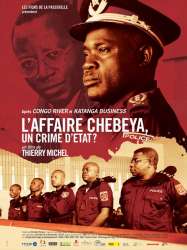
L'affaire Chebeya (2012)
, 1h36Directed by Thierry Michel
Genres Documentary
Themes Films set in Africa, Documentary films about law, Documentary films about politics, Political films
Rating69%





Floribert Chebeya was a human rights activist who had survived Mobutu Sese Seko's dictatorship and the subsequent civil war. On 2 June 2010, his body was found in a car near the capital, Kinshasa. The police quickly painted a scenario that made Chebeya the routine victim of a crime with sexual connotations. However, this version of the events broke down after an investigation in which the police were implicated. The government agreed to bring some of the highest police officials to justice in a military court, handing out stiff sentences to those found guilty and awarding compensation to the victims.

Mobutu, King of Zaire (1999)
, 2h15Directed by Thierry Michel
Origin Belgique
Genres Documentary
Themes Films set in Africa, Documentaire sur une personnalité, Documentary films about politics, Political films
Rating76%





"Of all the human passions, the appetite for domination is the most inebriating" (St. Augustine)

Winter 1960 (1983)
, 1h30Directed by Thierry Michel
Genres Drama, Documentary, Historical
Actors Philippe Léotard, Christian Barbier, Yvonne Gradelet, Bert André, Jenny Clève, Ronny Coutteure
En 1960, l'annonce des mesures de régression sociale décidées par le gouvernement belge déclenchent une grève sauvage des travailleurs. Albert et Fred sont aux premiers rangs d'une lutte qui promet d'être chaude et hasardeuse. La grande grève wallonne va alors ébranler la Belgique au plus profond d'elle-même. Violences, manifestations, internationales, drapeaux rouges, drapeaux wallons. Pendant cinq semaines, le pays sera paralysé par un mouvement qui se donnera souvent des airs d'insurrection.
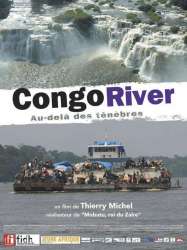
Congo River (2005)
, 1h56Directed by Thierry Michel
Origin Belgique
Genres Documentary
Themes Documentary films about historical events
Actors Thierry Michel
Rating75%





The film takes us from the mouth to the source of the second largest river basin in the world, that of the Congo River (the largest is the Amazon). All along its 4371 km, we discover places that have seen the turbulent history of this country, while archives remind us of the mythological figures that created its destiny: explorers such as Livingstone and Stanley, the colonial kings Léopold II and Baudouin I and leaders such as Lumumba, Mobutu and Kabila.

Métamorphose d'une gare (2010)
, 1h20Directed by Thierry Michel
Genres Documentary
Themes Transport films, Rail transport films, Documentary films about technology
The new Guillemins station in Liège was a huge project undertaken by the Spanish architect Santiago Calatrava, who had already directed construction of stations in Zurich, Lisbon and Lyon. The site presented many challenges. The film follows the project from start to end over a nine-year period. It documents the issues, frictions and tension of the project as well as the pride and enthusiasm of the people involved. The result was a modern cathedral of European high-speed rail. The project was controversial, being criticized as being too grandiose, too expensive to maintain and not well-adapted to the Belgian climate. In the process many old buildings were destroyed and the whole neighborhood was disrupted.
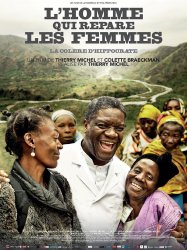
Directed by Thierry Michel
Origin Belgique
Genres Documentary
Themes Documentaire sur une personnalité, Documentary films about health care
Rating77%





Prix Sakharov 2014, le Docteur Mukwege est internationalement connu comme l’homme qui répare ces milliers de femmes violées durant 20 ans de conflits à l’Est de la République Démocratique du Congo, un pays parmi les plus pauvres de la planète, mais au sous-sol extrêmement riche. Sa lutte incessante pour mettre fin à ces atrocités et dénoncer l’impunité dont jouissent les coupables, dérange. Fin 2012, le Docteur est l’objet d'une nouvelle tentative d’assassinat, à laquelle il échappe miraculeusement. Menacé de mort, ce médecin au destin exceptionnel vit dorénavant cloîtré dans son hôpital de Bukavu, sous la protection des Casques bleus des Nations unies. Mais il n’est plus seul à lutter. A ses côtés, ces femmes auxquelles il a rendu leur intégrité physique et leur dignité, devenues grâce à lui de véritables activistes de la paix, assoiffées de justice.
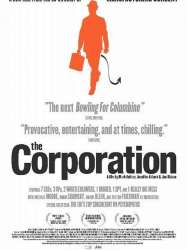
The Corporation (2003)
, 2h25Directed by Jennifer Abbott, Mark Achbar
Origin Canada
Genres Documentary
Themes Environmental films, Medical-themed films, La mondialisation, Films about the labor movement, Documentary films about business, Documentary films about environmental issues, Documentaire sur une personnalité, Documentary films about politics, Documentary films about health care, Documentaire sur le monde du travail, Films about psychiatry, Films about disabilities, Political films
Actors Michael Moore, Naomi Klein
Rating79%





The documentary shows the development of the contemporary business corporation, from a legal entity that originated as a government-chartered institution meant to affect specific public functions to the rise of the modern commercial institution entitled to most of the legal rights of a person. The documentary concentrates mostly upon North American corporations, especially those in the United States. One theme is its assessment of corporations as persons, as a result of an 1886 case in the United States Supreme Court in which a statement by Chief Justice Morrison R. Waite led to corporations as "persons" having the same rights as human beings, based on the Fourteenth Amendment to the United States Constitution.

Our Daily Bread (2006)
, 1h32Directed by Nikolaus Geyrhalter
Origin Austria
Genres Documentary
Themes Cooking films, Environmental films, La mondialisation, Films about the labor movement, Documentaire sur la cuisine, Documentary films about business, Documentary films about environmental issues, Documentaire sur le monde paysan, Documentaire sur le monde du travail
Rating75%





Le documentaire fournit des images sur le fonctionnement des plus grandes industries agroalimentaires européennes que ce soit dans le domaine de la production des fruits et légumes que dans celle de la viande. Ni musique ni commentaire ne viennent accompagner les séquences filmées. Le décor est constitué de champs, d'usines, d'abattoirs, et le réalisateur utilise de longs plans fixes y compris pour filmer les ouvriers en train de manger.

Voices of Transition (2012)
, 1h5Origin France
Genres Documentary
Themes Environmental films, La mondialisation, Films about the labor movement, Documentary films about business, Documentary films about environmental issues, Documentary films about technology, Documentaire sur le monde du travail, Disaster films
Rating75%





Using interviews and overlays of graphics and text, the film presents the current problems facing industrial agriculture. It explores why in the interviewees' view the current industrial model is not up to the task of feeding the world's people. According to the film every calorie of energy contained in a food source currently takes between 10 and 20 calories of crude oil in the production of fertilizers and transportation to produce, leading to a strong dependence of the cost of food on oil prices. As a result of peak oil and increasing oil prices this dependence will lead to ever increasing food prices. According to the film, this dependence already represents a significant weak-spot in the global food supply chain. Additionally, agriculture is already responsible for 40% of greenhouse gas emissions, contributing to climate change. Furthermore, the film argues that the overuse of inorganic fertilizers has been responsible for the loss of soil fertility and threatens the complete loss of usable soil within the next decades through soil erosion and sinking crop yields. These effects, according to the film, can only be partly mitigated by the increased use of those same fertilizers. The loss of workplaces, the concentration of land in the hands of a few (allegedly a farm closes every 23 minutes in France) as well as the dependence on large corporations are enumerated as side effects of the industrialisation of agriculture since the 1920s. Companies, such as Monsanto and Bayer, control everything from seed stock to fertilizers and the necessary chemical mixes for hybrid plants, thereby controlling the entire supply chain. The film argues that this development was supported through subsidies from the World Bank. Interviews with Vandana Shiva, the founder of the Transition Towns movement Rob Hopkins and various agricultural experts serve to argue this viewpoint. The dependence on crude oil is illustrated through the example of the wholesale food market in Rungis.
 Connection
Connection
